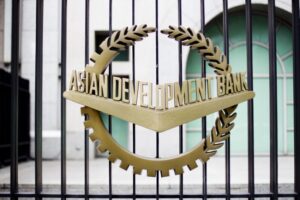
Nova Poshta, the leader in express delivery in Ukraine, has launched the first of seven gas-fired cogeneration gas piston units planned for installation by 2025.
“A new stage in the implementation of the energy independence program has begun: the first gas piston cogeneration unit with an electrical capacity of 1 MW has started operating at the company’s hub (Nova Poshta – IF-U) in western Ukraine. Six more CCGs are currently being installed and are expected to be commissioned this year, including in Kyiv,” Nova Poshta’s press service reported on Tuesday on Telegram.
The company’s CHP units will generate electricity and heat from natural gas.
According to the report, Nova Poshta has invested a total of UAH 300 million in energy independence and plans to invest another UAH 150 million in 2025. More than half of the total investment of UAH 450 million will go toward gas generation.
Earlier it was reported that Nova Poshta’s energy company (NOVA group) – Nova Energy – became an electricity trader after receiving a license from the NEURC.
Nova Poshta founded the energy company Nova Energy in April 2023 to develop regular electricity generation and ensure the autonomy of the company’s facilities in connection with Russia’s attacks on the energy system. Since August, the company has been engaged in small-scale wholesale sales of diesel fuel on the open market.
Co-owner of Nova Poshta Volodymyr Poperechnyuk announced plans to install industrial uninterruptible power supply systems and energy storage equipment to increase the efficiency of energy capacities.
He also stated that after the end of the war and the improvement of the energy supply situation, Nova Energy will be sold as a non-core business.
It was reported that Nova Poshta had installed a second solar power plant (SPP) at its terminal in Kyiv and plans to increase its capacity to 1.4 MW. Nova Poshta’s first 1 MW SPP was commissioned in January at the Kyiv Innovation Terminal, located on its roof.

On behalf of Foreign Minister Antonio Tajani, Italy has allocated EUR 13 million to the Energy Support Fund for Ukraine.
“At a time when attacks on Ukraine’s energy infrastructure are intensifying, this decision is an important step in efforts to restore energy systems damaged by the conflict. Italy’s contribution – one of the largest for a single country – will help stabilize the supply of electricity to millions of war-affected Ukrainians in this difficult time,” the Italian Foreign Ministry said on its website.
It is noted that with this contribution, Italy confirms its continued support for the resilience of Ukraine’s energy sector, in particular in connection with the conference on Ukraine’s recovery to be held in Rome next July.

Norway, in partnership with the United Nations Development Program (UNDP), has committed a total of NOK 1.1 billion ($105 million) in financial support to rebuild Ukraine’s energy infrastructure, build backup capacity and accelerate Ukraine’s transition to a more diversified and sustainable energy mix.
“This partnership will ensure the restoration of energy generating capacity in Ukraine, providing direct support to important regions of Ukraine. This contribution will significantly mitigate the impact of the ongoing shelling of Ukraine’s energy infrastructure. As part of this enhanced partnership, solar panels will be installed to provide backup power to schools and hospitals, and a recent agreement will provide an additional 80 MW of power to the national grid this winter,” the UN press service reports.
It is noted that thanks to the UNDP Energy Recovery Program, the provision of heat and water will meet the needs of more than a million people and industrial consumers.
“Russia’s constant attacks on Ukraine’s energy infrastructure have led to an urgent need to increase electricity production. There is a shortage of this type of equipment on the market. Therefore, the agreement with UNDP is very important to support Ukraine this winter,” Norwegian Foreign Minister Espen Barth Eide said in a government press release.
The production, transportation and installation of energy equipment are complex and risky processes that are carried out by reliable partners, as this is vital assistance that will enable Ukraine to survive the coming winter.
“We are committed to supporting Ukraine in its efforts to build a more resilient and sustainable energy system by restoring critical energy infrastructure and generation capacity, and advancing strategic initiatives to accelerate the transition to green energy. We are committed to supporting Ukraine in its efforts to build a more resilient and sustainable energy system. Rehabilitating critical energy infrastructure is essential as people living in multi-storey buildings in major cities have no alternative means of heating and water supply. UNDP’s Renewable Energy Program, through which we are supporting Ukraine’s energy recovery, is a testament to our commitment to promoting green recovery and energy security for all Ukrainians. We are grateful to our partners for their continued support,” said UNDP Resident Representative Jaco Silje.

France will provide Ukraine with at least EUR60 million by the end of this year, according to Pierre Elbrun, the French President’s Special Envoy for Ukraine’s Relief and Recovery.
“As winter approaches, the situation is becoming critical – we must act now to quickly offer concrete energy solutions,” he wrote on social media X following a meeting of the G7+ Ministerial Group on Energy Support to Ukraine at the level of foreign ministers on the sidelines of the 79th session of the UN General Assembly on Monday evening.
At the meeting, U.S. Secretary of State Anthony Blinken noted that the G7+ countries have mobilized more than $4 billion to support Ukraine’s energy sector since the start of Russia’s full-scale invasion.
In a statement following the G7+ ministerial meeting, the countries welcome further commitments of funding and in-kind support to cover the most urgent needs of the Ukrainian energy sector, including repairing damaged power plants and district heating systems, deploying new, distributed energy sources, emergency backup power for critical services, and passive protection of energy infrastructure.

Croatia will provide another EUR 5 million for the Ukrainian energy sector, Prime Minister Denys Shmyhal said following a meeting with Croatian Prime Minister Andrej Plenkovic.
“Mr. Plenkovic announced a new package of military assistance and another EUR 5 million for the Ukrainian energy sector. Ukraine highly appreciates all the assistance provided by Croatia. Thank you for supporting our country in all spheres,” Shmyhal wrote on his Telegram channel.
In addition, he said that the countries had signed two documents in the field of education and justice, which will contribute to Ukraine’s further European integration.
Among other things, the prime minister said that on Wednesday, the Croatian demining company DOK-ING opened its representative office in Ukraine.

The Asian Development Bank has approved two loans to Uzbekistan totaling $400 million to implement large-scale reforms in the energy sector aimed at improving its efficiency and competitiveness, as well as developing the country’s financial markets.
ADB’s Director General for Central and West Asia, Evgeny Zhukov, said that the reforms supported by these programs will help create an enabling environment for regulators and companies to play their part in stimulating development by creating reliable domestic financial markets and meeting energy needs while fighting climate change.
ADB will provide $300 million to reform Uzbekistan’s energy sector, including creating a more effective governance structure, improving legislation, and attracting private investment.
To develop Uzbekistan’s financial market, ADB will provide $100 million to implement regulatory and institutional reforms aimed at improving market conditions to optimize financial transactions and services, and to increase supply and demand side measures to grow capital markets.
Uzbekistan joined ADB in 1995, and since then, the bank has provided $12.5 billion in loans, grants, and technical assistance to the country.